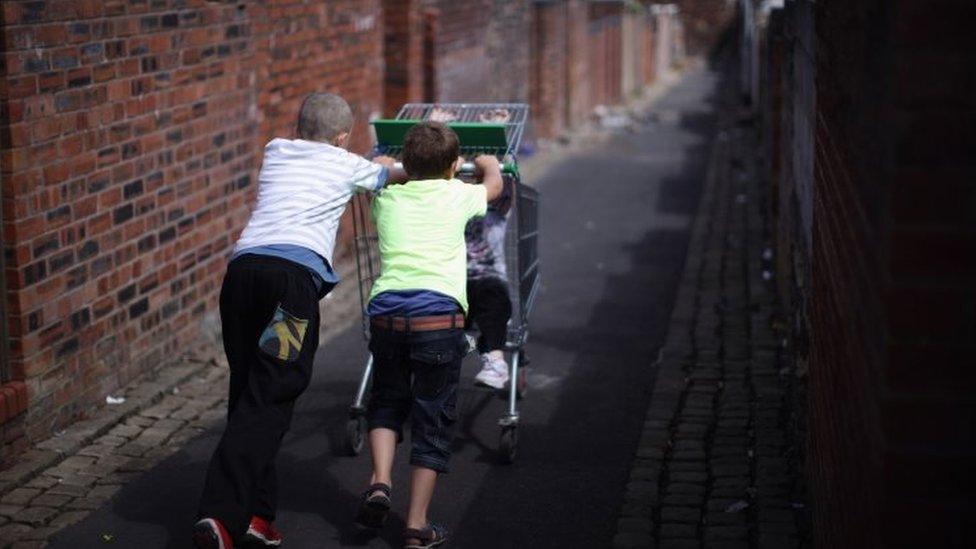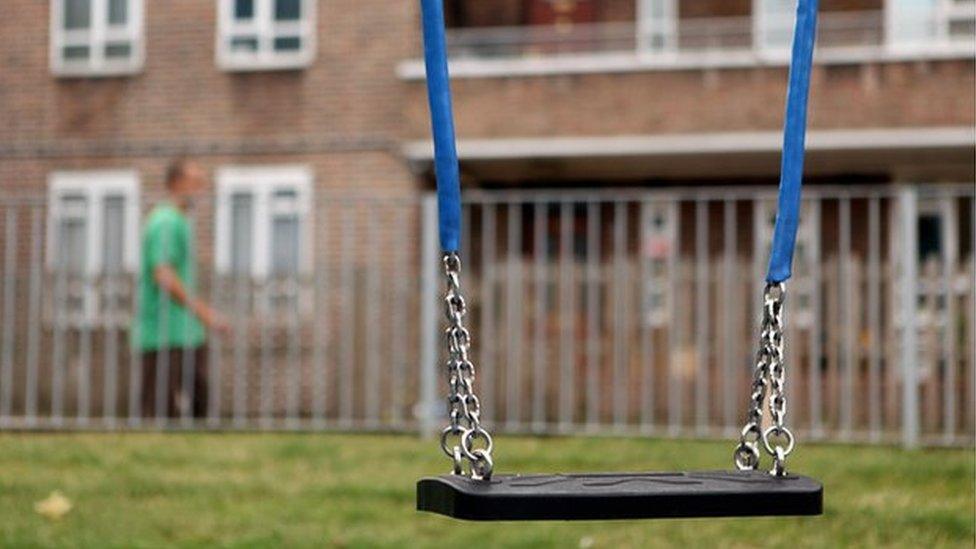Poverty up among pensioners and couples with children
- Published
- comments

Wales has a higher rate of poverty than England, Scotland and Northern Ireland
Poverty has increased among pensioners, single people and couples with children in Wales, according to new figures.
In the past 10 years the rate of single people living in poverty has risen from 26% to 29%, while for couples with children it has gone from 19% to 23%.
Pensioner poverty had been in decline in Wales but in the past five years has risen from 14% to 18%.
The Welsh Government said it was taking action to increase the number of well-paid jobs and prevent poverty.
The independent Joseph Rowntree Foundation studied the incomes of different groups across 20 years up to 2015/2016.
During those two decades, the overall rate of poverty among the Welsh population as a whole fell to just under a quarter.
But the report warned poverty has been on the increase among some groups over the past 10 years.
Among the findings were:
The proportion of lone parents living in poverty has fallen from 61% in the mid-1990s but remains high at 46%
Wales has a higher rate of pensioner poverty than England, Scotland or Northern Ireland
Child poverty in Wales was 36% in the mid-1990s. The foundation says reduction in child poverty has "stalled" as the rate hovers around 30%
In Wales, 39% of disabled people are in poverty compared to 22% of non-disabled people. The poverty rate among disabled people in Wales is the highest in all of the UK
The report looks at "relative income poverty" - broadly where someone lives in a household whose income is less than 60% of the median income after housing costs.
"Median income" is the mid-point where half the population receives income above that level, and half below it.
The study challenges the traditional belief that the way out of poverty is work.
Since 1997 Wales has seen a significant increase in the proportion of people working - up from 66% to 73%. There has also been a rise in the number of people with qualifications.
Despite this, the report said in the past 10 years, working-age poverty rates had increased.
'Fundamental priority'
The Joseph Rowntree Foundation is calling on the Welsh Government to make sure the economy works better for low-income families by working with business to create better jobs, build more affordable homes and make sure young people leave school with the skills they need.
Its chief executive Campbell Robb said: "Low-paid, unstable jobs, rising living costs and insufficient benefits mean that many people in Wales are locked in a daily struggle to make ends meet."
The Welsh Government said preventing poverty was a "fundamental priority" and its economic action plan sought to increase the availability of well-paid jobs as well as being committed to delivering 20,000 new affordable homes by 2021.
A spokeswoman said: "Next month we will publish our employability delivery plan which will set out how we will support people, including those furthest from the jobs market... and our childcare offer will support working families across Wales and provide them with more employment choices."
- Published2 March 2018

- Published23 February 2018

- Published2 November 2017

- Published26 January 2017
